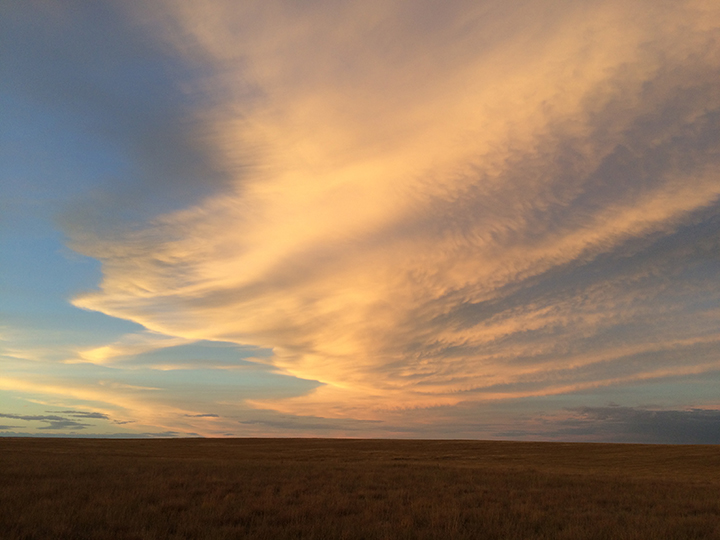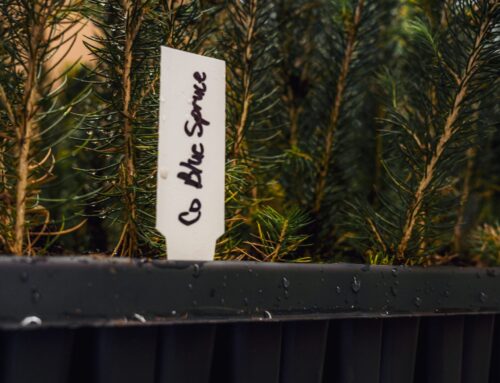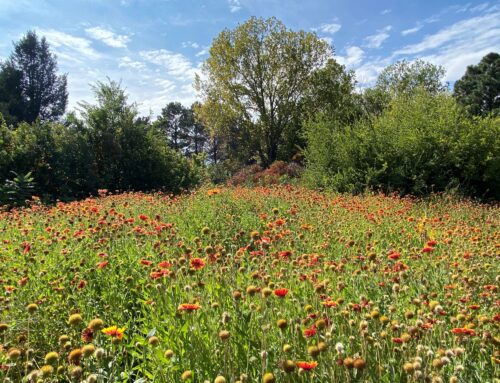Are you a crop or livestock producer or property owner? Are you interested in the changing landscape of no-till and grazing management? If so, pull out your 2017 calendar and mark February 15 & 16 for the Farming Evolution. The event will be at the Phillips County Fair Grounds Event Center in Holyoke, CO.
All of the presenters will speak to those considering or new to no-till as well as the long-term no-tiller. No-Till is more than the lack of tillage – it is a system. Varied cropping rotations and livestock are key parts to no-till success.
Keynote speaker, Odette Menard is a world recognized expert advisor in soil and water conservation. She works for the Ministry of Agriculture in Quebec, Canada. Menard will explore soil life and why no-till brings out the best in the soil, regardless of moisture. In her second talk, she will explain the soil food chain and the role of earthworms. Odette will close with ’10 ways to get into no-till’. She will emphasize the importance of building your own observation set and learning what they mean.
Rudy Garcia and Clark Harshbarger both work for the Natural Resources Conservation Service (NRCS). Harshbarger will give a visual demonstration of how tillage affects soil properties. Garcia will explain how to use the various soil health tests.
Culbertson, NE, producer Jacob Miller will share how his dryland and irrigated no-till systems have evolved over the years. He just recently became both chemical and fertilizer free. Livestock graze all of his cropland acres. He will share economics and other details of the cover crop and cash crop rotation on his farm.
Jerry Doan runs his own livestock and custom grazes a couple thousand head of cattle on range and cropland. He has included cover crops into his cropping system to reduce winter-feed costs and bring back organic matter.
Ken Miller will share their insights and experiences bringing livestock into the cropping system. He is 100% no-till with a diverse cropping system. He has an intensive grazing strategy using both cropland, planted pasture, and native range.
Don Day is a well-known meteorologist from Cheyenne, Wyoming. He will be on hand to talk about current and projected weather on the plains. He will also explore the many myths and facts about weather influences east of the Rocky Mountains.
Kyle Kautz has just started integrating cover crops on his Merino, CO, farm. He will share what sparked his interest in changing his operation and his experiences thus far.
There will be a live microscopic view of soil life projected onto the screens for all to see. Tim Becker, Holyoke producer & NRCS employee, and Steve Tucker, crop producer near Venango, NE, will discuss what we see.
Todd Gaines will wrap up the program exploring chemical weed resistance. Gaines is a world-renowned specialist in herbicide resistance and a Flagler, CO, wheat farm kid.
The registration website, www.farmingevolution2017.eventbrite.com is up and running. Registration is $25 for one day or $35 for both days. Registration includes lunch, breaks and a non-alcohol social on Wednesday evening. Registration rates increase $10 after February 3, 2017. Lunch is not guaranteed for registrations after February 12.
Ag businesses are invited to participate as exhibitors. Contact Sheila Rogers with the Yuma County Conservation District. Call 970-332-3107 ext. 3 or email her at yccd77@gmail.com. Booths are $150 and include 8 ft. of table space and two lunch tickets for each day. Spaces are limited due to room capacity.
The Haxtun, West Greeley and Yuma County Conservation Districts, the Upper Republican Natural Resource District, NRCS and Phillips County Pheasants Forever sponsor the Farming Evolution.
Great Plains Herbicide Resistance Listening Session
There will also be a Great Plains Herbicide Resistance Listening Session on Friday, February 17. The meeting will start promptly at 9:00 a.m. and end by 3:00 p.m. Complimentary coffee and lunch will be provided.
The goals/outcomes from these sessions include:
- Identification of effective strategies for management of herbicide resistance. The goal is to avoid additional state and federal regulations on herbicide use and other weed management practices.
- An understanding of the barriers and long-term rewards to practicing herbicide resistance management (HRM).
- Establishment of additional incentives needed for HRM. These could be recommended to agencies and industry as well as state and federal policy makers.
- Identification of new innovative approaches for HRM that can be incorporated into best management practice plans.
- Creation of networks among stakeholders. This will help foster a better understanding of the differences in perspectives, barriers and possible solutions for managing herbicide resistance. Ultimately, the organizers hope to stimulate your interest in being part of the solution.
RSVP’s are requested by January 17 for a lunch count. Contact Sandra McDonald at sandra@mountainwestpest.com or call her 970-266-9573.




